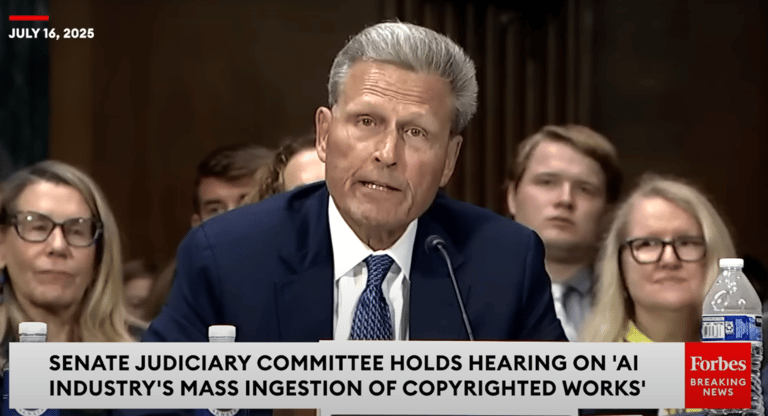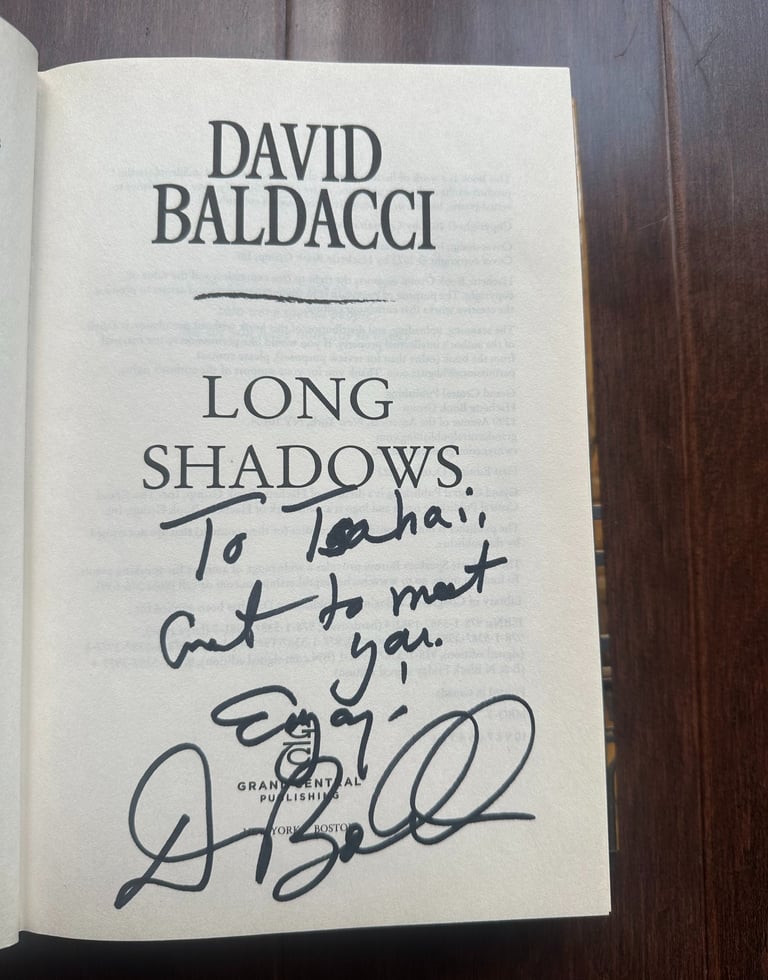Building a Better Beta that Respects Creatives
New York Times bestselling author, David Baldacci, addressed the U.S. Senate Judiciary committee on Big Tech Copyright Infringement in one of the most eloquent and powerful six-minute rebukes of unethical AI and generative AI (GAI) usage. And for every word, we couldn't agree more.
Tsahai Banks
7/22/20254 min read


On July 16, 2025, acclaimed New York Times bestselling author, David Baldacci, addressed the U.S. Senate Judiciary committee on Big Tech Copyright Infringement in one of the most eloquent and powerful six-minute rebukes of unethical AI and generative AI (GAI) usage.
Baldacci recounted the painstaking years it took for him to not only hone his craft as a writer, but also learn from other writers through reading their works.
He points out that he does not have the ability to remember every line, like an LLM can, of his favorite author, John Irving’s books.
More importantly, he never read Irving with the motivation to steal, but rather to simply be inspired and learn from one of the greats.
What seems to be the very foreign concept of admiring and learning without the need to capitalize off of or commodify everything. To read the greats in appreciation instead of a desire to rip them off. To do this, one typically needs an appreciation and respect for the arts.
After over sixty novels, Baldacci says he believed that his hard work in perfecting his craft had paid off:
“…Until my son asked ChatGPT to write a plot that read like a David Baldacci novel, and in about five seconds three pages came up that had elements of pretty much every book I’d ever written…That’s when I found out that the AI community had taken most of my novels without permission and fed them into their machine learning system…These trillion dollar companies didn’t even buy my books, they got them off of a website with pirated works.”
As if to say… you’re worth stealing from but not worth paying.
Balducci goes on to describe how he “felt like someone had backed up a truck to my imagination and stolen everything I’d ever created.”
When we think Big Data and living in a black box society, we can oftentimes be tricked to only consider this when it comes to our online usage. When really, Big Data means everything, including your very essence.
My two favorite quotes from Balducci’s testimony:
“They complained that it would be far too difficult to license the works from individual creators. So apparently it was more efficient to steal it. Trillion-dollar companies with battalions of lawyers, did not have the resources to do things lawfully? I was once a trial lawyer. If I had made that argument in court I would have either been laughed out the courtroom or held in contempt by the judge. And rightly so.”
“If AI companies only needed words they could have fed every dictionary in the world into their machine learning. But that was not nearly good enough because it would mean decades of additional work and hundreds of billions of dollars of additional investment. What they needed was complete, well-crafted, living, breathing stories…humanity on the page..”
“…they needed us and our craft that we learned with a sweat of our brows and the flexing of our imaginations.”
The grandiosity that comes with technical elitism/technocratic delusion means that the entitlement to steal from YOU is now repackaged as what is best for YOU.
When vibe coding started becoming popular, many software developers on social media scoffed and mocked as they compared vibe coders to lazy, unskilled, unintelligent neanderthals that did not understand the complexity and craftsmanship behind computer programming.
We will leave this here as we consider the metaphoric parallel for GAI and writing as well.
Balducci explains that he could never get away with stealing the AI communities’ source code but “they don’t feel the same about people like me.”
This brought to mind the question: Has the nerd, the techie, the former so-called underdog now become the lunchroom bully who brazenly steals everyone’s homework but gets away with it by saying its for a really important science project?
I love tech. But I love human-centered, ethical tech even more. As I consider myself both a creative and a techie, I respect the craftsmanship and dedication that is for required in the mastering of these separate disciplines. Respect is due to every author, television script writer, poet, orator and essayist just as much as it is due to every software script writer, mathematician, ethical hacker, computer programmer and engineering scholar.
At Read Write X, as we build our beta for our writing platform, we are constantly considering how to ethically incorporate AI by weighing in the following questions in our design/build-out:
How do we keep this platform human-centered?
How do utilize GAI in an controlled/closed way to avoid copyright infringement/theft?
How do we restrict/temper AI-usage to ensure human ingenuity and avoid cognitive stagnation through AI reliance?
How do we prioritize substantive storytelling and protect the oftentimes therapeutic writing process?
Join us on our journey and share your thoughts below. And special shoutout to one of our favorite human writers David Balducci who proves that creative talent is gold. We reframe the old software coding adage of garbage-in, garbage-out (GIGO) today to mean Gold-In, Gold-Out (GIGO).
Do not bite the creative hand that feeds you. Or better yet, don't bite the creative hand that you feed off of.


